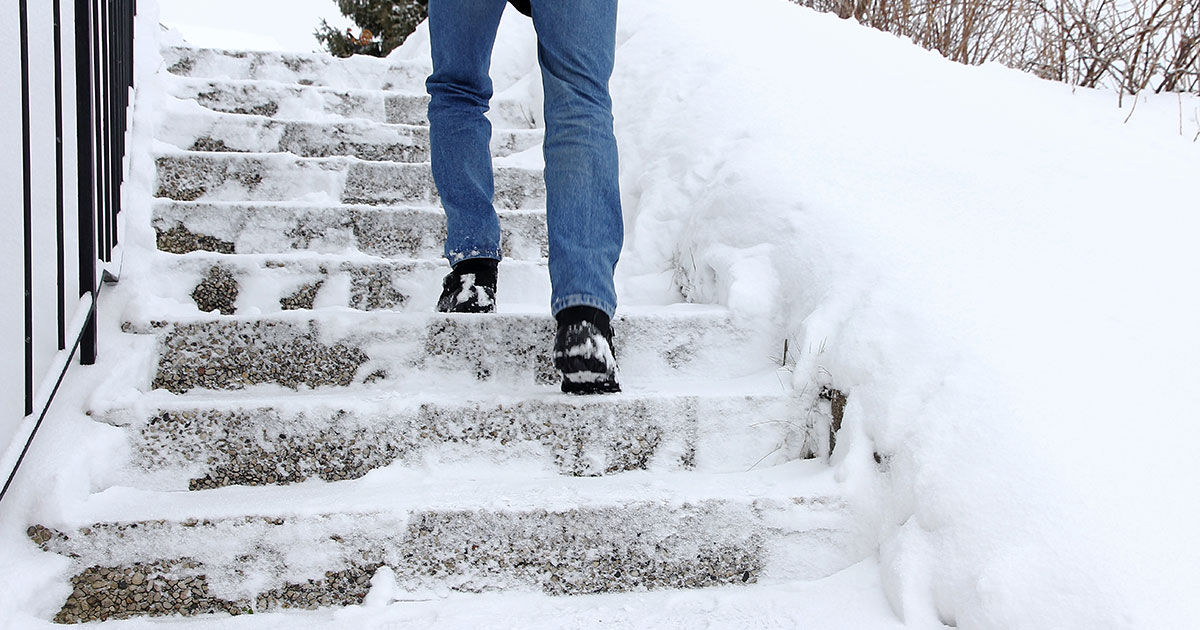
When most people hear “slip and fall accident,” they probably imagine that a broken portion of a sidewalk or an unmarked wet floor in a store caused the accident. But slip and fall accidents can occur under many scenarios, especially during winter months.
You may wonder since no one controls ice and snow other than Mother Nature, who is responsible for a slip and fall accident under these conditions?
This blog will cover the basics of premises liability law regarding ice and snow in North Carolina and what the law could mean for a personal injury claim.
How Does a Fall Qualify as a Personal Injury?
Falls happen daily, but not all falls qualify as a personal injury under the law. Under most circumstances, to pursue an injury claim, an accident must cause serious or permanent injury and it must have also occurred in a situation which could have easily been prevented by a property owner.
This is why most people think of wet floors when hearing “slip and fall accident.” In these cases, if a store owner failed to mark, or take care of, the potential hazard and someone slipped, accident would clearly fall into the category of a personal injury.
Seek the appropriate medical attention after a slip and fall accident. Be sure to document all the care you receive, medical images such as x-rays, doctor’s notes and any prescribed treatment plan if you plan to file a personal injury claim.
Who May be Liable for the Incident?
In addition to seeking medical care, you must also determine who, if anyone, could be considered responsible for keeping the area where you fell in a safe condition. Examples of who could be liable on specific property types include:
- Commercial property, such as a department store—the property owner and staff members
- Government property, such as federal building/courthouse—the building staff, maintenance staff, and government
- Public property, such as a park—the maintenance team and the city
- Rental property, such as an apartment building or complex—the landlord, property owner, tenants, and maintenance team
- Residential, such as a privately owned home—the homeowners and contractors who may have performed recent maintenance
While some of the business, individuals and organizations listed above are technically responsible for keeping their properties safe, you are also expected to follow any posted safety guidelines and exercise appropriate care. For example, if a property owner has a “watch your step” sign posted above a doorway, your personal injury claim may not be valid if you cannot prove that you exercised a reasonable amount of care and still fell.
However, some of the above noted businesses, individuals and organizations are rarely liable under the law. An example of this would be, while the government could be responsible for a slip and fall accident outside a federal building, usually the government as an entity has no control over the conditions at a building, therefore are not liable for any accidents.
When Does an Ice or Snow Incident Become a Premises Liability Case?
In North Carolina, ice and snow slip and fall accidents rarely qualify as personal injuries. In most cases, NC law recognizes that a property cannot be held responsible for the accumulation of any precipitation or be expected to remove all ice and snow at any given time.
There are however certain scenarios that are exceptions to this broader law, such as:
- If a property owner heightened the poor conditions through reckless or negligent action. Many injury claims occur because an individual behaved negligently or recklessly. In the case of a slip and fall accident, a property owner could be negligent if they failed to notice a broken pipe that caused a dangerous amount of ice. If the property owner knew about this hypothetical pipe and intentionally ignored or put off the repairs, they may be considered to have behaved recklessly.
- If a property owner had a contractual obligation to remove snow and ice. Some business owners and/or landlords sign contracts obligating them to remove winter precipitation. If the snow or ice is not removed in a reasonable amount of time, they could be liable for any accidents that occurred as a result. In a situation like this, a property owner could be liable for a slip and fall on ice that accumulated for several days but not for snow that appeared overnight since they would not have had a chance to complete removal.
- If a property owner overlooked an underlying hazard that was the cause of the incident. If a hazard on the property caused dangerous snow or ice conditions, the owner could be responsible. For example, a property owner can be held liable for a broken paver during any season.
Because winter premises liability claims are complex under NC law, we encourage clients to consult with a trusted and experienced attorney to determine if you have a claim. The team at Hardee, Massey & Blodgett will evaluate any injuries you sustained, the property you sustained those injuries on, and any other relevant information that can help you take the best step toward physical and emotional recovery. Call us today for your free consultation, 252-378-2525.
